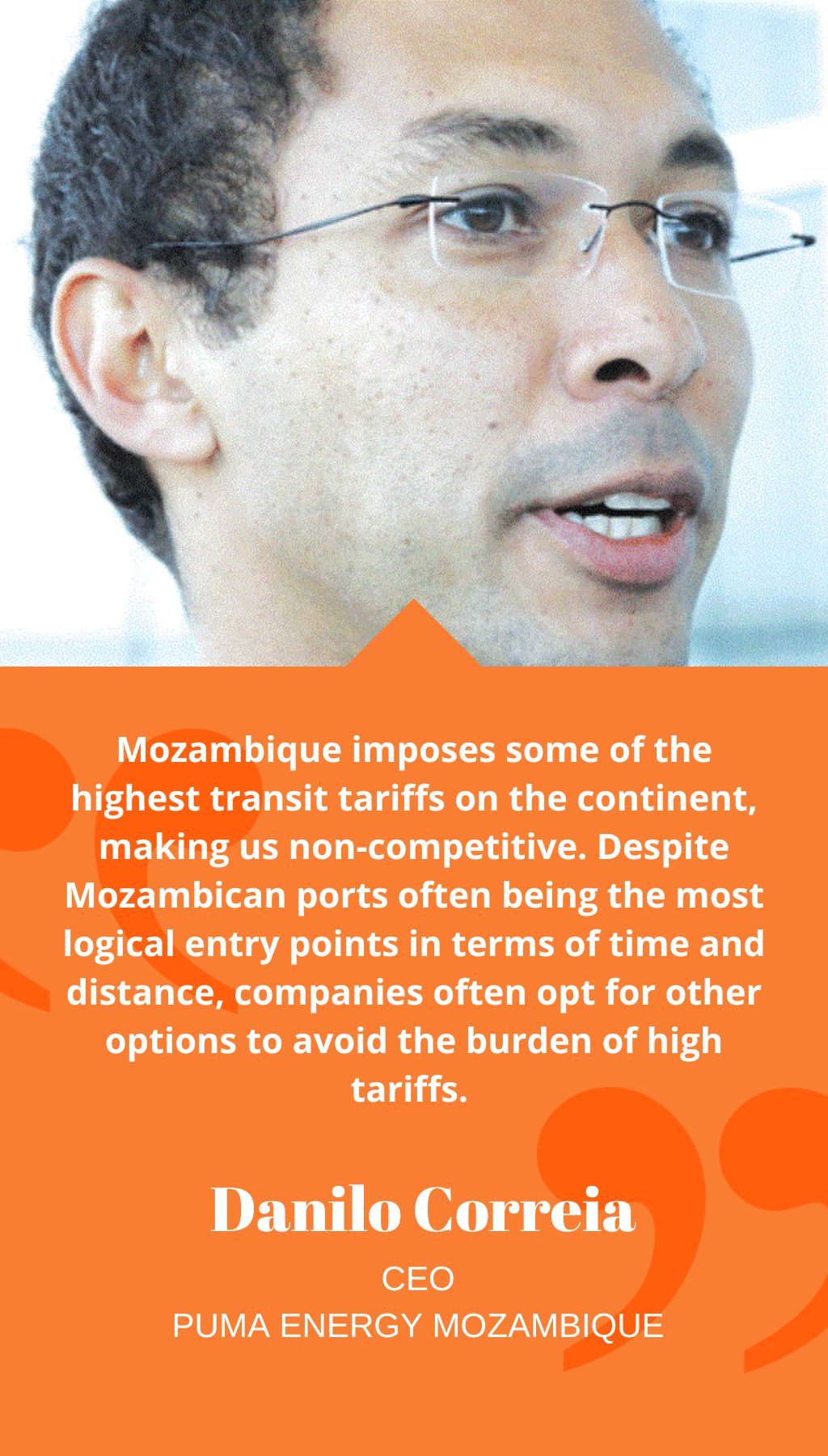
- Mozambique | 30 October 2020

How important is Mozambique for Puma Energy’s global operations?
Mozambique holds great significance for Puma Energy’s global operations. As a downstream company, we are present in 18 African countries, with 12 of them experiencing thriving operations. We have been operating in Mozambique for the past decade. In this country, we engage in six lines of businesses, including retail, B2B, aviation, bitumen, storage, and lubricants. Mozambique stands out as one of our most promising markets. It ranks fourth in terms of growth potential and first in terms of profit margins, indicating that the market has reached a mature phase. My vision for Mozambique is that within five years, it will become one of the major contributors to Puma Energy Africa.
Which segments are the most important for Puma Energy in Mozambique?
Currently, our primary focus lies on the retail segment, where we aim to expand our network and enhance customer service. The B2B segment is also vital because Mozambique still lacks the necessary infrastructure to support its industries, making it crucial for us to provide energy solutions to our customers. The aviation market is growing across Africa, and in Mozambique, we hold the leading position, supplying fuel to the seven major airports. Given Mozambique’s strategic geographical location, the storage segment is essential as it serves as a critical corridor for inland areas and neighboring landlocked countries. Additionally, the lubricants sector plays a significant role in our operations. We already have terminals in Maputo and Beira, and we plan to expand our terminal capacity and establish new terminals. However, the bitumen segment is currently experiencing a slowdown due to a significant decline in construction activities. Regarding clients, we are increasingly focusing on serving the energy demands of the oil and gas sector. We also aim to target clients in the mining, agriculture, and fisheries industries.
Can you comment on the strength of Puma Energy’s brand in Africa?
Unlike major oil and gas giants, we do not benefit from the same level of brand awareness built over a century. However, this situation works to our advantage. We are perceived as the young kid on the block, which gives us a fresh and vibrant image. Our colorful logo symbolizes agility, adaptability, and the ability to meet the demands of the market quickly. These qualities make Puma Energy an appealing brand for Africans.
What is your outlook for 2020?
Despite the global challenges we face, I believe that 2020 has the potential to turn around Mozambique’s economy. After years of preparation in the LNG industry, we are ready to make significant progress and attract investments. Mozambican companies are prepared as well. Foreign investors interested in Mozambique should understand that they are entering a country that has been eager to overcome poverty for decades. It is essential for them to comprehend the specificities of doing business in such an environment, which entails understanding the history, culture, and being patient. Though it may be challenging initially, Mozambique will quickly catch up to meet international expectations. Clear and honest dialogues between international and local players, as well as between the private and public sectors, will allow Mozambique to develop without succumbing to the “resource curse” trap.
What regulatory improvements do you advocate for?
Mozambique imposes some of the highest transit tariffs on the continent, making us non-competitive. Despite Mozambican ports often being the most logical entry points in terms of time and distance, companies often opt for other options to avoid the burden of high tariffs. This situation is detrimental to the industry. Decreasing tariffs may result in short-term revenue loss for the government, but they should consider the subsequent increase in trade volumes, which will generate more revenue in the long run.














